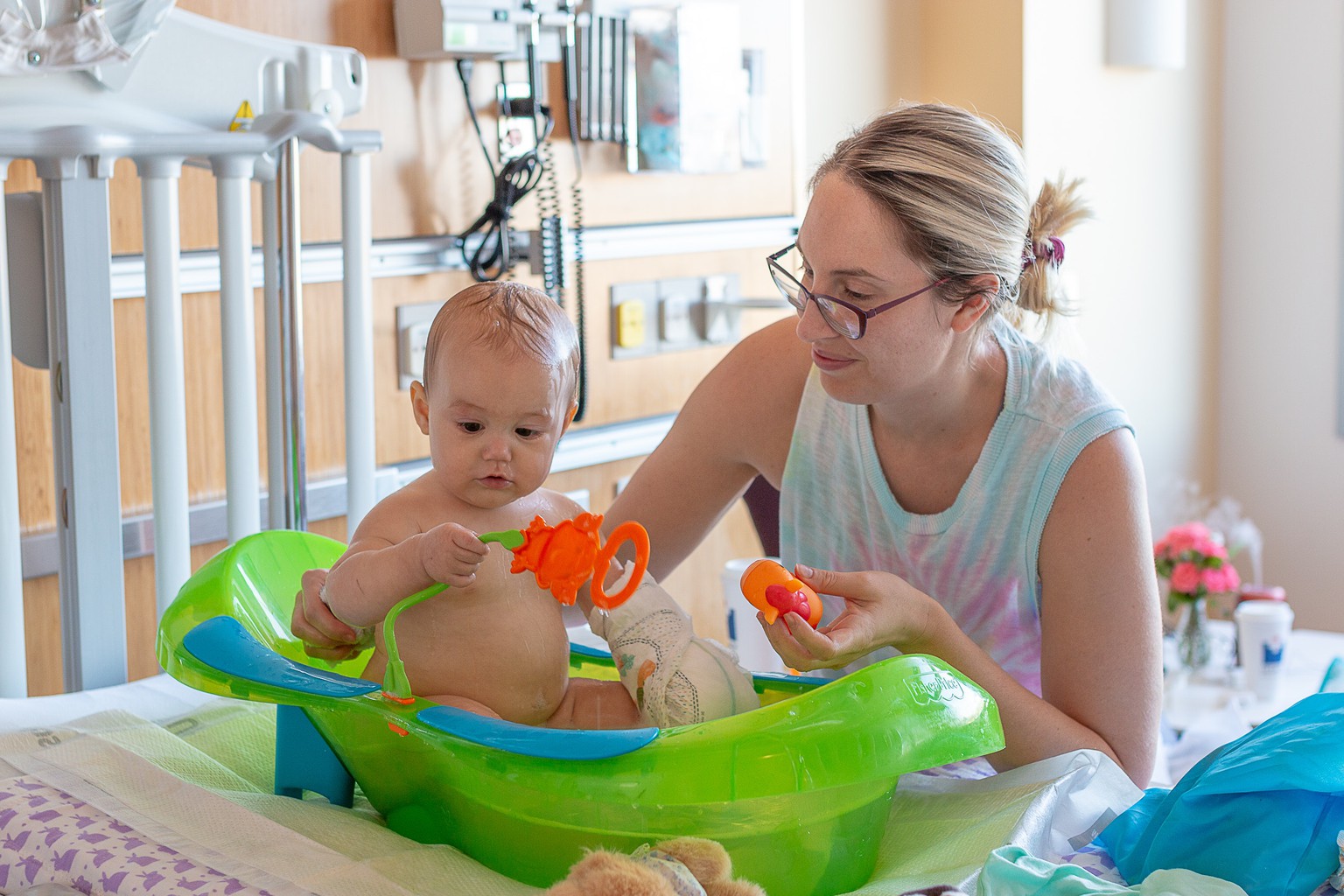Life in the Hospital Lane Pt.3
Wed Feb. 1st 2023

PREPARING FOR HOSPITAL
Making use of Technology and School
When your child begins school, or if already attending, they may worry about what they will miss while being in hospital. It is important to stay in touch with friends, family and the outside world. Technology means it is much easier to keep in touch than ever before. Video calling can be a great way to keep a connection between your sick child, their friends and any family members at home – they can even keep an eye on their pet if they have one!
If your child is in their teens, facing exams and assessments is a further worry. Speak with their school and teachers early and come to an arrangement where work can be taken home easily if your child is well enough to read, write and study. It can be difficult but try not to miss out on work. Some teenagers even find that they are ahead of the class when they return!
Helping other Siblings
Life can be stressful when your child is in hospital, or life is lived with the possibility of hospital any day. This stress is increased if you also have other children at home to look after. Parents have often said that brothers and sisters of a child who is ill can be affected too. They may show behavioural changes, such as being more clingy to their parents, tantrums or challenging behaviour, non-specific ailments such as tummy aches or headaches, sleep disturbances, noticeably low mood or become withdrawn. Confusion is common if your children at home do not understand why their brother or sister is in hospital. They may develop their own reason for what is going on or can even imagine something far worse. They may worry that they are going to ‘catch’ an illness or fear that their brother or sister will never get better.
If you feel any of your children are worrying excessively about their sick brother or sister, make a time to talk it over with them. Try to give your other children as much information as they need to understand what is happening with their brother and sister. You could read a book or watch a story about being in hospital. Let them know that it is great for them to look out for and show concern for their brother or sister, and at the same time reassure them that no question or concern is silly, or unimportant – their priorities will most likely be completely different from yours.
If other siblings really struggle with separation from either you or their sick brother/sister, there might be a special item of yours they can keep close, something that reminds them of you, or a treasure they can hold safely for you. For older children, a responsibility such as caring for the family pet or watering a plant for you, might help them feel useful and trusted.
Encourage them to talk to you about any concerns. They may find it easier to write down their questions or thoughts, or it may come out while you’re engaged in play. Getting that time in with your children opens up a space for them to communicate their concerns and feelings. For older children, it may even be easier to have some conversations with them using text or email, even if this feels strange at the start.
When you get Home
Children often process and react to their time in hospital once you return home after a period of illness. You may find they are more clingy or more tearful than normal. Some children seem to regress or go back a few steps in their development. If you are concerned about your child’s behaviour, ask your family doctor (GP) for advice.
You may notice some disturbances to their sleep, appetite or eating, or using the toilet. They may return to sucking a dummy or need a favourite teddy more than usual. These are all normal responses to the changes in their routine and should settle down soon after returning home.
Once you have navigated a difficult time, for example an extended hospital stay or a change in the sick child’s health, be sure to praise the children at home for their bravery and patience. Let them know you appreciate what changes they have had to make. Talk about how it has affected their world. When the time is right, encourage their feedback about what worked/didn’t work for them – be open and honest so that improvements can be made next time.
It can be tricky, but try not to miss family events such as a sibling’s birthday or special school events. Even if the event (where possible) has to be postponed a little, in doing this, it will avoid feelings of resentment, being forgotten or unimportant. Acknowledge the event and help your child and their siblings to understand that ‘normal’ celebrations may have to be postponed, but they will still be wonderful and exciting occasions when the time is right for your family.
